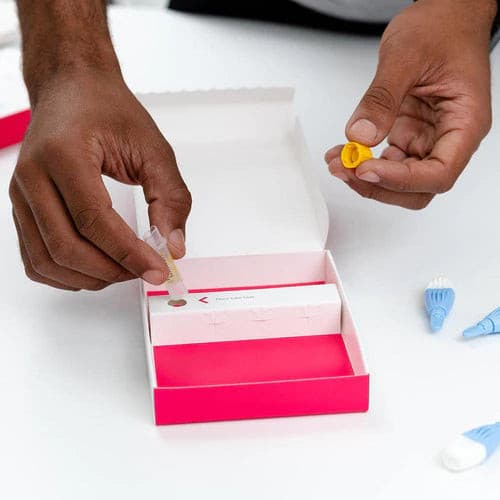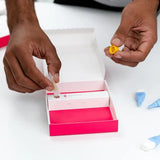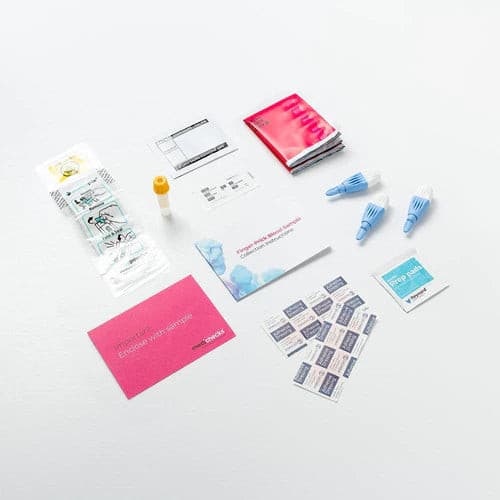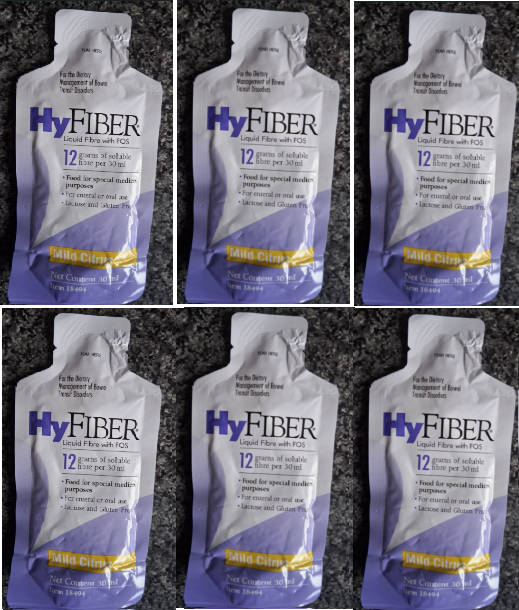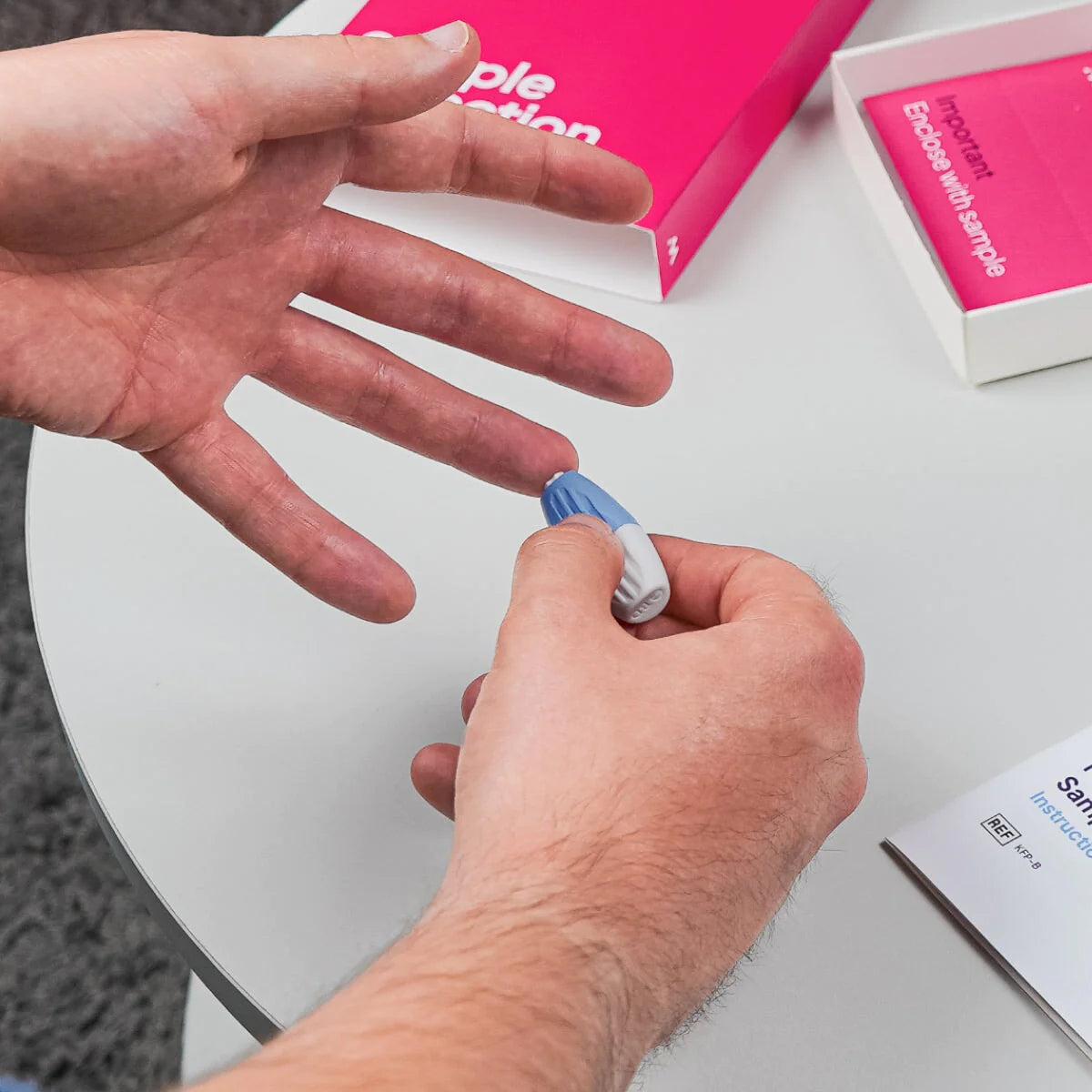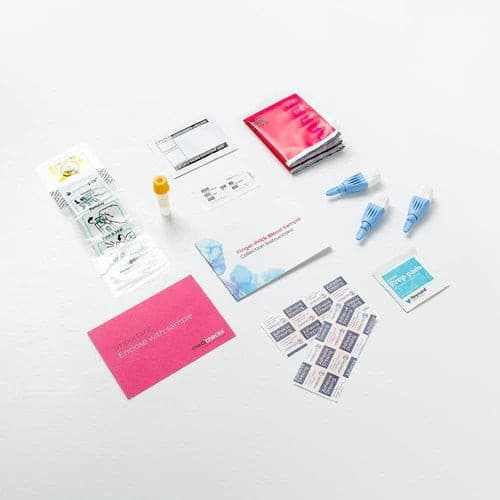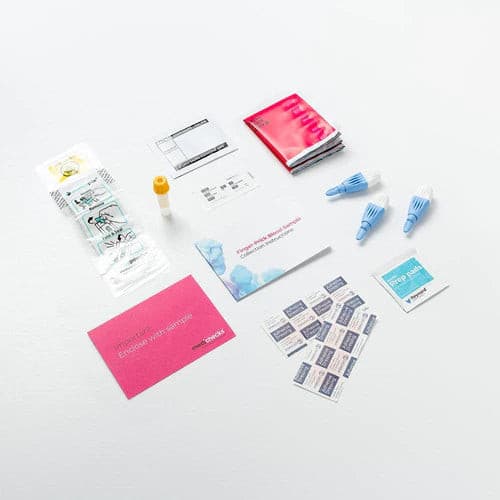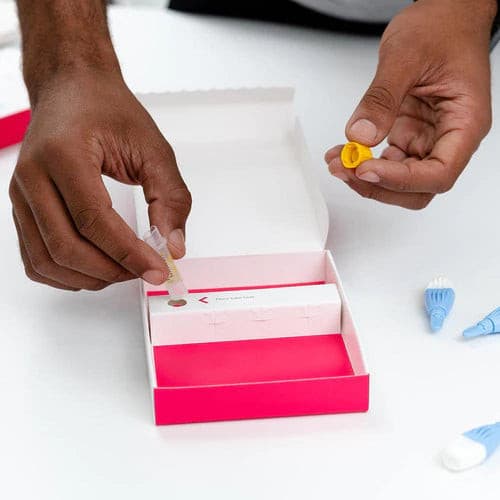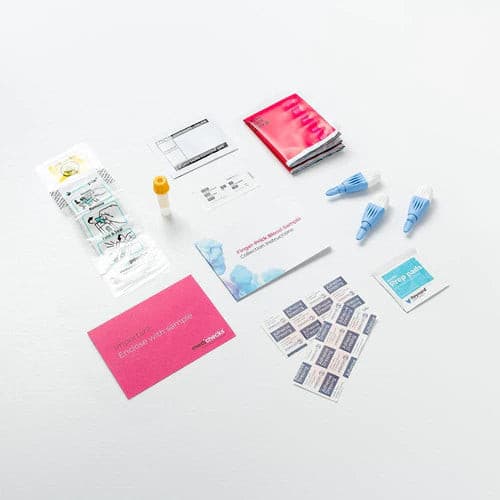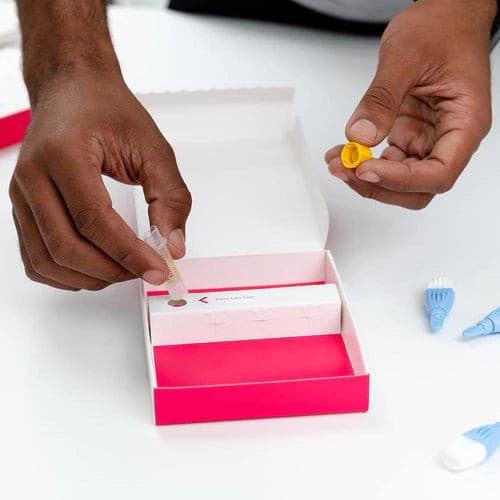
About Description
- getting the vitamins and minerals it requires for good health
- also check your cholesterol and inflammatory levels
Why People Choose Us

Quick & Easy
No appointment or long waiting times

Discreet Packaging
Plain packaging with no medical stamps or marks

Confidential Service
Your information stays with us and private payment

UK Medication
Dispensed by registered UK pharmacists
Cholesterol Status (6 Biomarkers)
Total Cholesterol
LDL cholesterol
Low density lipoprotein, often known as LDL cholesterol, is a lipid and protein molecule that carries triglycerides, cholesterol, and other fats to various bodily regions.
When fatty deposits build up inside artery walls due to an excess of LDL cholesterol, sometimes known as "bad cholesterol," this could result in atherosclerosis and heart disease.
Through food and exercise, your cholesterol levels can be dramatically reduced. Likewise, if you can raise your levels, you may be able to avoid developing significant, potentially fatal illnesses in the future.Results for HDL and LDL (and non-HDL) can be used as benchmarks and improvement targets. Regular exercise, especially cardio and weight training, will help lower LDL and raise HDL.
Cholesterol levels will also be optimised by a Mediterranean diet that is heavy in vegetables and oily fish and low in meat and dairy.
Non-HDL cholesterol
All of the cholesterol molecules that are not HDL (or "good" cholesterol") are referred to as non-HDL cholesterol. Therefore, it includes all of the potentially dangerous and non-protective cholesterol in your blood.
As a result, it is thought to be a more accurate indicator of cardiovascular risk than LDL cholesterol and total cholesterol. Less than 4 mmol/L of non-HDL cholesterol is advised. Through food and exercise, your cholesterol levels can be dramatically reduced. Likewise, if you can raise your levels, you may be able to avoid developing significant, potentially fatal illnesses in the future.
Results for HDL and LDL (and non-HDL) can be used as benchmarks and improvement targets.Regular exercise, especially cardio and weight training, will help lower LDL and raise HDL. Cholesterol levels will also be optimised by a Mediterranean diet that is heavy in vegetables and oily fish and low in meat and dairy.
HDL Cholesterol
High Density Lipoprotein, often known as HDL cholesterol, is a molecule that transfers cholesterol from the bloodstream to the liver, where it is broken down and expelled from the body as bile.
The term "good cholesterol" refers to HDL cholesterol. Through food and exercise, your cholesterol levels can be dramatically reduced. Likewise, if you can raise your levels, you may be able to avoid developing significant, potentially fatal illnesses in the future.
Results for HDL and LDL (and non-HDL) can be used as benchmarks and improvement targets. Regular exercise, especially cardio and weight training, will help lower LDL and raise HDL.
Cholesterol levels will also be optimised by a Mediterranean diet that is heavy in vegetables and oily fish and low in meat and dairy.
Total Cholesterol/HDL
By dividing your total cholesterol value by your HDL cholesterol level, you can get your cholesterol/HDL ratio. It serves as a gauge of cardiovascular risk since it provides useful information about the percentage of "good" cholesterol in your total cholesterol (i.e. high-density lipoprotein, HDL).
The cholesterol/HDL ratio is used by heart disease risk calculators (like QRisk) to estimate your risk of suffering a heart attack.
Triglycerides
Triglycerides are a type of lipid that move through the bloodstream. They are transported in the bloodstream by chylomicrons and VLDLs, two types of lipoproteins (very low density lipoproteins).
Following a meal, extra calories are converted by your body into triglycerides, which are subsequently carried to cells where they are stored as fat. Triglycerides are then released by your body when it needs energy.
Vitamins (2 Biomarkers)
Your body requires vitamins as necessary nutrients to function properly. They must come from the food you consume because you cannot manufacture them yourself. There are two categories of vitamins: fat-soluble and water-soluble.
Oily foods, whether animal- or plant-based, contain fat-soluble vitamins like vitamins A, D, E, and K.
You don't need to eat them every day because your body stores them in fatty tissue and the liver. You must consume meals containing these nutrients more regularly because the majority of water-based vitamins, such as vitamin C, are not stored in the body.
A balanced diet should provide you with all the vitamins you require. But occasionally, dietary decisions or medical issues might make us vitamin deficient.
Vitamin B12
The generation of red blood cells, which transport oxygen throughout the body, depends on vitamin B12.
Additionally essential for metabolism and the nervous system, vitamin B12 deficiency can harm nerves over time.
Although plant milks are increasingly frequently enriched with vitamin B12, vitamin B12 is still nearly exclusively found in meals derived from animals.
Vitamin D
Together with calcium, vitamin D is essential for bone maintenance. It is crucial for both protein synthesis and muscle function.
Other non-musculoskeletal advantages, such as immunological regulation, defense against chronic diseases, and improved sports performance, have also been emphasized by more recent studies.
Maintaining adequate amounts of vitamin D is crucial for athletes. When your skin is exposed to sunshine, it can produce vitamin D.
This is challenging in the UK, especially during the winter. Even if they exercise outside, people in the UK frequently have low vitamin D levels.
Inflammation (1 Biomarker)
When your immune system is triggered to purge your body of external invaders or irritants and to guard against tissue damage, inflammation results. Inflammation frequently manifests as heat, redness, swelling, and discomfort.
An acute or persistent inflammation might exist. Infection or injury are common causes of acute inflammation, which appears for a few days before going away. Long-term diseases including arthritis, inflammatory bowel disease, or asthma can lead to chronic inflammation.
Certain proteins that are elevated in the blood as a result of inflammation can be tested to determine the level of inflammation and, in some cases, its underlying cause.
CRP HS
The C-Reactive Protein (CRP) is a marker of inflammation that is used to determine whether there is inflammation in the body but not where it is situated.
A test known as High Sensitivity CRP (CRP-hs) is used to find low-level inflammation that may harm blood vessels and cause a heart attack or stroke. There is a great deal of inflammation at the site of a significant injury. The swelling around a twisted ankle is easy to picture.
Your CRP-hs will increase with any damage of this nature. But frequent exercisers also run the danger of developing chronic low-level inflammation, which can harm their performance.We draw this picture using CRP-hs, CK, and your complete blood count (see the articles on the liver and complete blood count).
When you are rested for the test, inflammatory markers like CRP-hs provide the most insight; otherwise, they may be increased from recent exercise.
Iron Status (1 Biomarkers)
Ferritin
A complex globular protein called ferritin is used to store iron in an inactive form. The ferritin releases its iron for usage as your iron reserves get depleted.
You will run out of iron if your ferritin levels drop, and your ability to make red blood cells in your bone marrow will also suffer.
Thus, ferritin provides a reliable indication of your iron reserves. Ferritin can rise at times of infection, inflammation, or trauma because it is an acute phase protein as well.
Minerals (1 Biomarker)
Your body need minerals for proper operation because they are inorganic substances. Minerals and trace elements are the two subcategories of minerals.
While both are essential, minerals are needed in greater quantities than trace elements. Minerals must be obtained from the food you eat because your body is unable to produce them.
Numerous internal processes, such as the development of sturdy bones and teeth, maintenance of the body's fluid balance, normal nerve and muscle function, hormone production, and control of blood pressure, are all attributed to minerals.
The majority of the minerals we require should be obtained from our diets. However, you can discover that you are mineral deficient if you exclude specific food groups, follow a highly rigid diet, or have an issue with gut absorption.
Magnesium-Serum
In the body, magnesium is the second most prevalent intracellular divalent cation and the fourth most plentiful mineral. Less than 1% is in the blood, 50% is in your tissues and about 50% is in your bones.
It is essential for more than 300 metabolic processes, including the production of DNA, nerve conduction, muscular contraction, parathyroid function, and energy storage. Magnesium deficiency can result in weakened muscles, muscular spasms, changed creatine kinase, and changed lactate response to exercise.
Due to their propensity for low magnesium levels, athletes should regularly check their magnesium levels. Make sure to eat a meal high in magnesium.Over the years, there has been a lot of research on the use of supplements as a boost to performance and to treat deficiencies.
The results of the current studies are still ambiguous, and some persons who take magnesium supplements actually experience a faster than usual decline in magnesium levels.
Therefore, it seems, at least for the time being, that consuming a diet high in magnesium is the best approach to receive the magnesium you need.
Easy Steps for your Medicine

Complete a consultation.
With complete privacy and confidentiality your form is checked by a pharmacist independent prescriber.
Choose your treatment.
From the list approved by the prescriber, choose your preferred treatment and then wait for it to be dispensed by UK Meds online pharmacy.
Receive your delivery
With next day delivery options available, you can have your treatment sent out to you discreetly within hours.Our Happy Customers
Rated Us for our Service Excellence
 Dispensed by Regulated UK Pharmacists
Dispensed by Regulated UK Pharmacists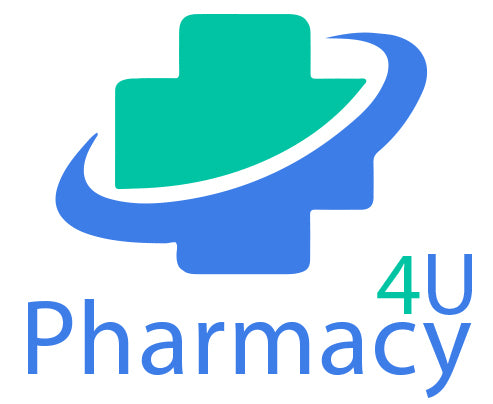

 How it works
How it works Help
Help Account
Account
 Basket
Basket






